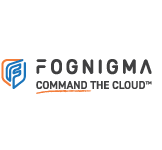Remote work is now more common than ever. People often associate remote work with normal work lifestyles. Because of this, many businesses operate by having sensitive information communicated and worked on through the Internet. Having secure remote access is important and ensures employees can safely access company resources and data from any location. Read more on how this article will explore the concept of secure remote access, its importance, and how Fognigma can help.
What is Secure Remote Access?
Having secure remote access is a person’s ability to get into a business or company’s network safely in a remote location. This can be done through specific tools or secure network security. Secure remote access also makes sure unauthorized users don’t get into the infrastructure since having remote data available is more enticing to hackers to get into. Often, IT professionals can do this by encryption, authentication, and secure protocols.
Why is Secure Remote Access Important?
Secure remote access is more than just having a layer of protection. It’s extremely important for so many other reasons, including:
- Data Protection: Ensures that sensitive information remains confidential and protected from cyber threats.
- Compliance: Helps organizations adhere to regulatory requirements and standards for data security.
- Business Continuity: Allows employees to access necessary resources, ensuring business operations continue smoothly, regardless of location.
- Productivity: Enables employees to work efficiently from anywhere, increasing productivity.
Challenges in Securing File Sharing for Remote Military Departments
Being in the military is serious enough. If you’re dealing with file sharing in a remote environment within a military department, the stakes are way higher. Sensitive information gets thrown around daily, so it’s important to protect it from unauthorized users. Also, you can use permissions or some authentication methods, so you know the people you want to see the data are the only ones accessing it. Cyber threats can happen at any time. It’s best to be prepared for the worst. Managing data with collaboration from people across different time zones can make your information vulnerable to hacks.
The Role of Fognigma in Securing File Sharing
Sharing files remotely can be a little nerve-wracking, but if you work with the right people, like Fognigma, you’ll find these challenges can be maintained and much easier than previously thought. Read more about what we offer as far as solutions go.
Anonymous and Secure Access
Fognigma’s file server service provides secure and anonymous access, ensuring users never directly access files from a server. This adds a layer of protection against human error and insider attacks.
Dynamic Access Controls
Fognigma allows generating URLs with specific user access, which can be destroyed in just a few clicks. This feature adds an extra layer of security for downloading confidential information.
Intuitive Access Control
Administrators or IT managers can control user access to confidential files and folders through permission assignments configured in minutes using Erebus servers.
Encrypted Data Management
Fognigma uses encryption to protect data, ensuring only authorized users have access. This encryption can also remove access for specific users, enhancing security.
Layered Network Security
Fognigma combines various security measures, such as advanced login information and dual authentication, to create a nearly impenetrable layered network security system.
Utilizing Obfuscation Techniques
Fognigma employs obfuscation techniques to mask data and users, making it incredibly difficult for outside attackers to access information.
Practical Use Case
Most of the time, when you’re file sharing or collaborating with others, many users tend to be in the same cloud. This can sometimes cause slow page speed, interfere with data, and, most importantly, be prone to cyber-attacks. Fognigma can take things like VPNs to the next level and create on-demand, completely traceless instances. Using VMs from commercial cloud providers as exit points, Fognigma hides your organization’s traffic in the vast pool of IP addresses allocated to millions of people using the cloud at any time.
Best Practices for Secure File Sharing
Why is network security important? Keeping your channels secure and safe is easier than you may think. You should be good if you follow the basic safety procedures in secure file sharing. Here are some popular ones to keep in mind:
- Encrypt Communication Channels: Encrypt all communication channels, including voice calls, text messaging, group chats, and email.
- Regular Monitoring and Updates: Consistently monitor and update all systems to protect against the latest vulnerabilities.
- Restrict Access: Limit access to outside users and conduct regular security audits to identify and rectify potential threats early.
What Enables Secure Sharing and Access of Data and Devices?
When you want to share a file or email, a digital exchange is involved. The wrong individuals can often intercept this process. When you enable secure sharing capabilities, you’re one step closer to sending your data or communication with peace of mind, knowing it’s going to the right person. This is especially important in military settings, where sensitive information is more vulnerable to unauthorized access.
Summary
Knowing what remote security looks like is the first step in secure sharing. Secure remote access protects sensitive information and makes sure you can communicate continuity, no matter where you’re located. Fognigma offers robust solutions to the unique challenges of secure file sharing, especially in remote military departments. By implementing best practices and utilizing advanced security measures, organizations can ensure that their data remains protected and operations continue smoothly. Learn more about Fognigma’s solutions and start securing your remote access today!
